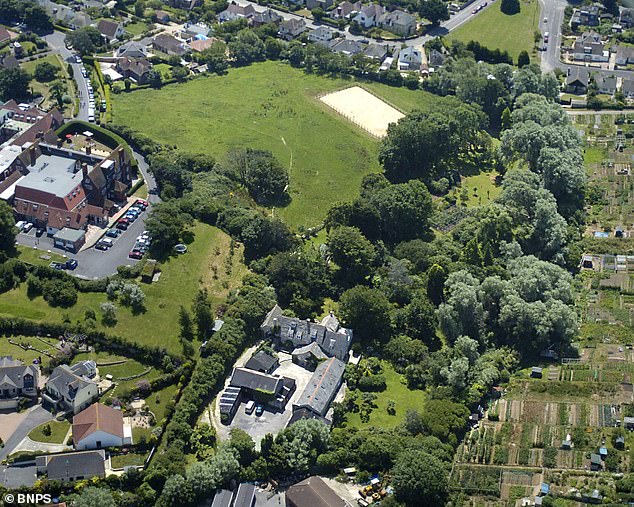Jonathan Ross, the renowned chat show host, has voiced strong opposition to plans to build 93 new homes near his £2 million farmhouse in Dorset, citing concerns about privacy intrusion.
Ross and his wife, screenwriter and producer Jane Ross, have owned the Grade II listed property, situated near Swanage, since 2005. The sprawling estate boasts a swimming pool, tennis court, and horse riding grounds, providing a secluded retreat for the couple. However, the peace and quiet may be disrupted by a proposed development on the site of the former Harrow House International College, which closed its doors in 2021 after a 52-year run.
Developers are aiming to convert the disused school into a mix of flats and homes, hoping to meet the area's housing targets. Ross argues that this proposal would lead to a "distressing loss of privacy", as the new homes would directly overlook his 16th-century farmhouse, including bedrooms.
The potential for unwanted attention and scrutiny from new residents is a significant concern for the TV personality, especially considering the property's seclusion. Ross has previously rejected numerous offers from developers to purchase his land, acknowledging the impact new dwellings could have on the local community.
In a letter to Dorset Council planners, Ross expressed his concerns: "Building up the height of the current buildings would mean that our property would be directly overlooked. We have bedrooms that face towards the proposed development and the loss of privacy would be very distressing and cause a great deal of stress. We are also concerned about the change to the fabric of local life caused by so many new dwellings in the area, and the direct impact on traffic and amenities. Building work on this scale would have a negative impact on wildlife."
The proposed development includes 14 apartments within the existing school building, 38 one to three-bedroom flats in three apartment blocks, and 41 two to four-bedroom homes. The maximum height of the buildings would be three or four storeys.
Echoing Ross's concerns, fellow resident Malcolm Jenkins voiced his own worries about privacy breaches: "Being an elevated site, this will allow the new residents a clear view down into the existing properties and gardens meaning a complete loss of privacy. It will also mean blocking sunlight." Jenkins added that the development appears to be "overdevelopment in an unsuitable location" and that the proposal should be "carried out in a way sympathetic to existing neighbours to produce quality homes away from the site boundary, not a profit driven exercise forced on local people."
Other residents shared concerns about the strain on local infrastructure, including already overstretched GP services, which could be overwhelmed by the influx of new residents.
Michael Millar suggested that the site would be better suited for a supermarket, stating that Swanage is becoming increasingly crowded and existing services are struggling to cope. Janet Scott voiced worries about affordability, arguing that "most, if not all" homes would be out of reach for Swanage's residents.
The developers, Westcoast Developments, have maintained that the development would deliver a "highly successful and sustainable housing development", with 10 per cent of the homes being affordable.
Despite Ross's objections and those of other residents, the proposed development is still under consideration. It remains to be seen whether the planning authorities will take into account the concerns raised and the potential impact on the local community, or whether the drive for new housing will overshadow the need for careful consideration of its potential consequences.
Article
Entertainment

Chat Show Host Fights New Homes Near His Dorset Farmhouse

